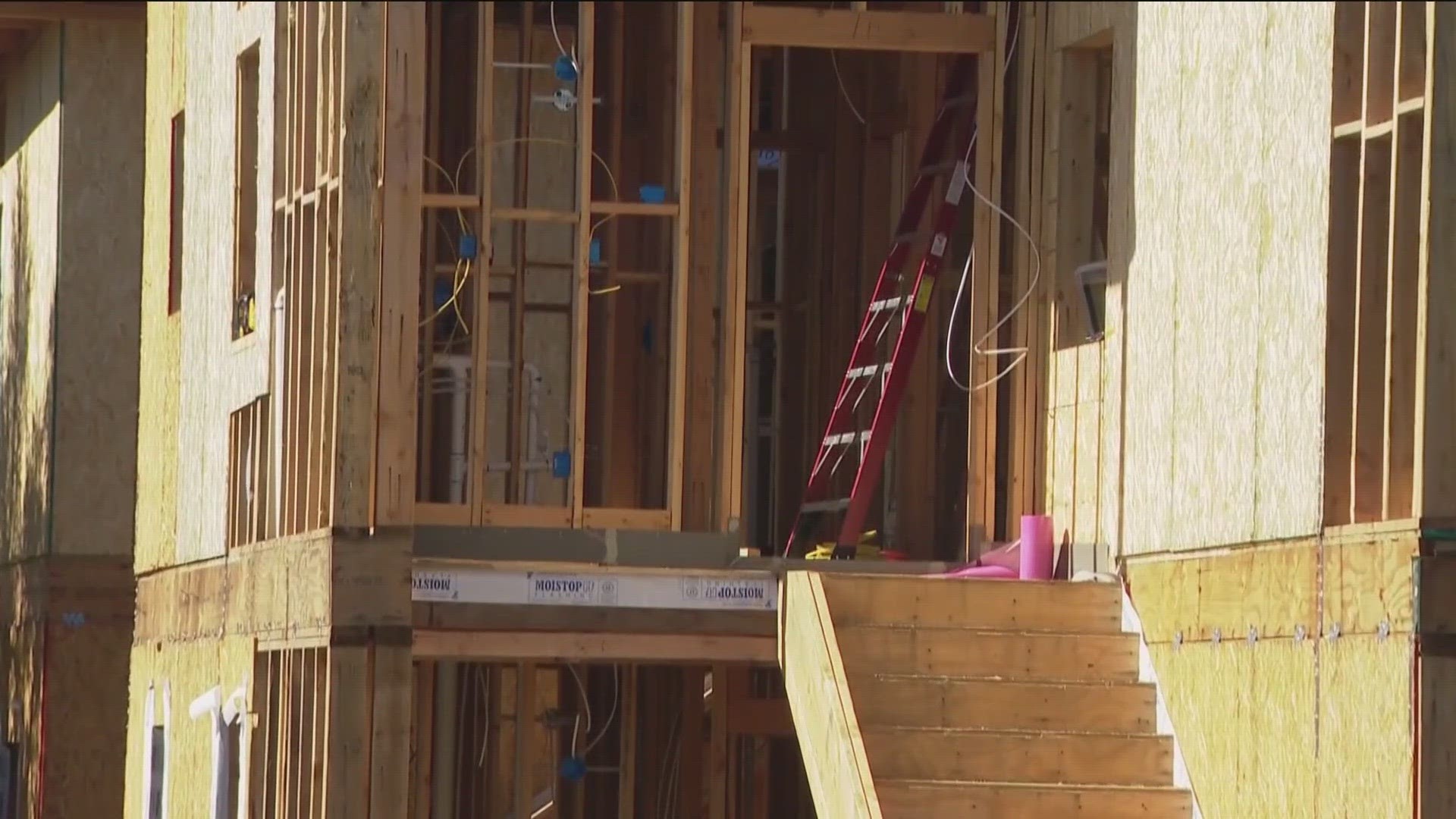SAN DIEGO — The City of San Diego has decided not to move forward with Mayor Todd Gloria's "Housing 2.0" plan. The city council meeting lasted for six hours Monday and had more than 85 speakers.
Mayor Gloria put this statement out on social media last night:
"Let’s be really clear: the lack of affordable housing in San Diego is central to nearly every challenge we face as a city. Homelessness. High cost-of-living. Recruiting and retaining talent, young people, and businesses. There’s only one way to address this: Build. More. Homes."
He indicated he will review the city council's feedback and bring his plan back for consideration in "the near future."
According to the mayor's office, Mayor Gloria's Housing Action Package 2.0 aimed to bring more housing by creating policies that make it easier and faster to build homes.
“We are going to have a very important conversation,” Council President Sean Elo-Rivera said in a video posted to social media.
But the plan has drawn criticism.
"What the city is trying to push through is not sane," said La Jolla resident Catharine Douglass. "We need parking. People are not going to give up their cars. We do not have transit for people to move around the city. You can't take kids to after-school activities, you may have to drive them to school."
"You can't live wherever you want to live," she added. "I wanted to live on Park Avenue in New York City, I couldn't afford it. I lived around the corner. It's pure and simple. Everyone in the world can't live in San Diego."
According to the mayor's office, for decades, the rate of construction of new homes within the city has not kept up with the demand. Some of the policies proposed include fighting for environmental justice in communities of concern.
The city plan included phasing out industrial uses to make way for more homes and parks.
They also planned to bring incentives to address homelessness among college students, people with disabilities, and seniors. The proposal would have provided more affordable housing for those at risk of being unsheltered by encouraging projects of single-room occupancy.
The proposal also outlined greater flexibility for public agencies to develop homes on publicly owned land, turn underutilized strip malls and parking lots into homes, as well as implement state law to relax parking requirements. It would give builders near public transit stops the ability to decide how many spaces they need.
The group, Neighbors for a Better San Diego, told CBS 8 said it had concerns about this plan.
In particular, a proposal that would move required affordable units off-site from a project, and instead to less desirable locations. In other words, there's concern communities could be segregated based on income.
"You're going to pick certain areas where you're going to put off-site affordable housing as opposed to having it in the communities where, frankly, those people are workers in the community," said Geoff Hueter, a member of the group. "Those are the people that people see every day, they're an integral parts of people's communities. Having them live in those communities as well is an important social benefit of the whole idea of complete communities."
He said there's also concerns about relaxing parking requirements for builders.
"If we are going to set standards for not requiring parking, there should be two conditions," he said. "One is measurement. How you get to that transit should be walking distance, not some random radial distance that could go across a canyon or a freeway because people walk to transit or even if they bike or scooter it's on the public right of way, not across canyons. We're not birds."
He said the second condition should be that the public transit itself should actually exist before building begins. SANDAG has projects in the works several years down the road.
"If there's no public transit there, clearly you're gong to need a car," said Hueter.

